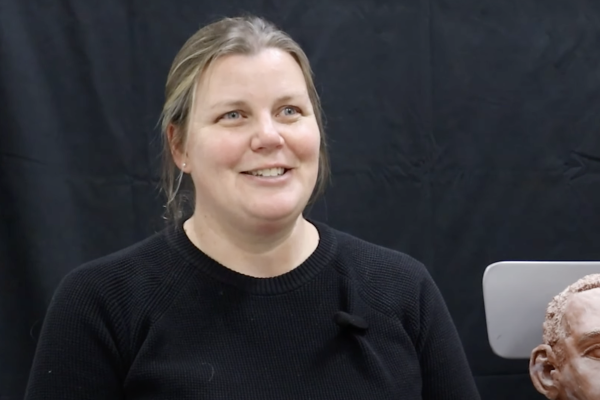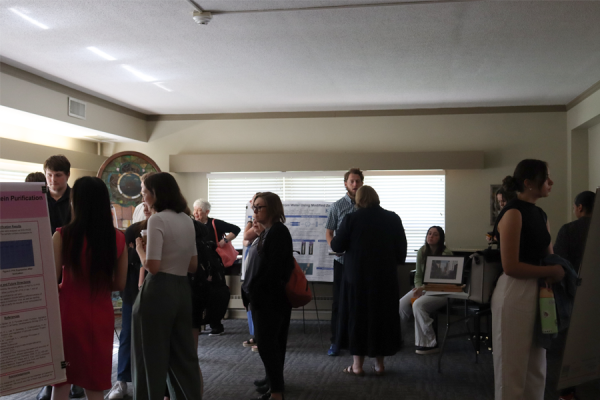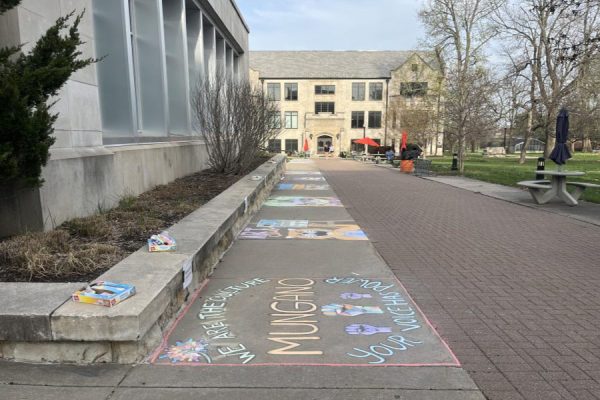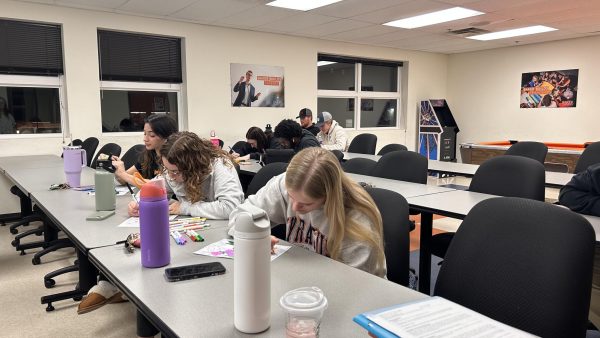Faculty Senate will debate changes to Quest requirements
(additional reporting by Jenna Black, Madison Dispensa and Brenna Thompson)
PROPOSALS:
• Eliminate QS212 and SN401
• Eliminate linked courses
• Introduce SN205: Environmental Justice
• Refocus requirements on courses that provide specific abilities, understandings and experiences
Faculty members will discuss possible changes to the Quest program during the next Faculty Senate meeting on Tuesday, Nov. 3. Assistant Professor of Sociology Carrie Coward-Bucher, who is the chair of the Quest program, recently discussed the possible changes with students.
“Last spring there was a discussion in Faculty Senate about problems, or perceived problems, with the Quest program, and one of those was whether or not the links were effective,” Bucher said. “And another one had to do with the number of links and how to present them. And the third was in terms of, are we transfer-friendly?”
The current Quest requirement for linked classes with QS211, QS212 and QS311 has created complaints from some students.
“The only thing I think I could say that I don’t like is linked courses because sometimes finding linked courses to fit your schedule is hard,” sophomore Brenda McCollum said. “And sometimes the content is really random.”
McCollum’s concern is being addressed in proposals created by an ad hoc committee and is now being debated by Faculty Senate. Under these proposals, instead of having a co-requisite class, students will be able to take exploration courses to fulfill specific educational goals.
According to Professor of Psychology Rand Ziegler, an ad hoc committee member, the development of Quest was planned around a list of abilities, understandings and experiences (AUE’s) that Baker faculty felt necessary for students to master before graduation.
“Instead of checking off classes, students can check off AUE’s,” Ziegler said. “That way they can see exactly what Baker expects of them.”<br/>
The proposals from the ad hoc committee would also eliminate QS212, which covers “Ideas and Expression,” and the senior honors salon, SN401.
In addition to the eliminations, the proposals include a new required class, SN205, which will be titled “Environmental Justice.” The class will cover the relationship between human behavior and ecosystems.
Eliminating the requirement for co-requisite classes may make it easier for some students to schedule their classes and for transfer students to receive more Quest credit for classes they have previously completed.
“The removal of the chunks is really helpful for the students who have majors that are highly stacked upon one another, like the Mulvane sciences, that have to go in a particular order,” Bucher said. “It’s sometimes hard to carve out six hours of time in a single given semester.”
Any changes to the Quest program would apply to next year’s incoming freshmen, so current students might not be affected.
Some students and faculty are not convinced that changes are needed.
“I don’t think they should change the Quest program,” freshman Dani Hamilton said. “I feel like I’ve learned a lot in the class I am taking. I like it the way it is.”
Freshman Daniel Rivera agrees with Hamilton.
“I really like how it takes any subject that you are interested in,” Rivera said. “And it helps change that into general education.”
Bucher said one of the risks of changing the Quest program involves finding enough staff members to teach required classes. Also, if changes increase the total number of required hours for Quest, the additional hours could affect how easily students can complete a minor or a double major within four years.
Bucher finds that the current Quest program is about 22 percent of the 128 hours required to graduate, and the proposed program is closer to 30 percent of the total hours. However, the increase in hours comes with additional flexibility for students.
The risks involved are very “practical risks,” Bucher said, adding that they are “solvable.”











